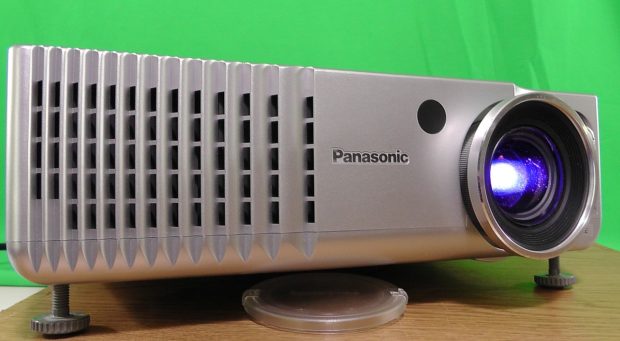If you want to avoid watching your favorite movie along with dozens of noisy teenagers and surrounded by popcorn, a home movie theater is exactly what you need. Home movie theaters are becoming increasingly popular but creating one requires much more than just buying good quality equipment.
Here’s what to start with when creating a home movie theater:
- The first thing you need to decide when building or renovating your home is where your movie theater will be.
- Ideally, the room should be rectangular in order to achieve good acoustics.
- If you’re planning a tiered seating, make sure the ceiling is high enough.
- Think about how many people will use the home theater as this will impact the size of the room, but also the size of the screen and positioning of seats.
Projector Screen or TV?
When it comes to TV, your options include plasma TVs (but bear in mind that many companies have stopped producing them) and LED. Here are some tips if you decide to go with a TV:
- Many experts recommend Samsung TV as the best option
- Slim LED TVs are very easy to mount on a wall
- Look for full HD instead of HD-ready models.
- Avoid using the latest technology and choose models that have been on the market for at least 9 months as their price will have decreased.
- Choose a larger size screen.

However, even the biggest TV screen can’t compete with projector screens. If you want a screen that is 100 inches and over, go for a projector.
Projector tips:
- Projector lamps burn out after about 2,000 hours of use.
- If you’re using a projector, pay special attention to the light levels.
- If you’re looking for a screen for daily use, a TV is a more suitable option.
What about the price? You’ll probably wonder which projector is worth the money or if you really need that high-quality drop-down screen but, at the end of the day, it all depends on how much money you can afford to spend.
Plan Your Equipment Space
A large portion of the work that goes into creating a home movie theater happens behind the scenes. Your primary goal should be to hide the equipment from view so that you don’t have to rip off plasterboard to add cabling or power points later.
The building or renovating plan should include a space for the equipment which can include a Sky+HD box, film server, DVD player, Blu-ray player or gaming console, etc.

Here are a few tips to help you conceal the equipment:
- Match the color of the speakers to the walls or cover them with the artwork.
- Consider installing a drop-down screen.
- You can also invest in wireless speakers to avoid the need to run cables up the walls or across the floor.
- A soundbar which contains all speakers in one slim unit mounted under the TV.
If you plan to build a high-end home movie theater, then you’ll also need to plan a location for the projector. Bear in mind that larger and fancier projectors are usually noisier and produce lots of heat. You might want to consider placing such a projector in a separate space outside or mount it on the ceiling with external heat ventilation.
Pay Attention to Sound
The key to any successful home theater is a surround sound that is delivered through speakers. Most home theaters use 5.1 surround, which includes five speakers, out of which three are placed behind or around the screen, and two are in the rear.
Even though there are options 6.1 or 7.1, more speakers don’t mean better quality of sound. If your budget is tight, go for solid-quality 5.1 speakers instead of low-quality 7.1.
Soundproofing and Acoustics
Soundproofing and acoustics are very important in making sure the sound doesn’t echo or escape, but also in preventing booming sounds from disturbing other people in your home or your neighbors. Here are a few ideas to help you soundproof your home movie theater:
- Additional soundproofing strips to the doors or insulation to the walls.
- A double layer acoustic plasterboard with green glue in between.
- An inner wall stud.
- Acoustic wall panels.
Pay attention to some interior design elements as they may have practical application as well. For instance, hard surfaces make the sound bounce off, whereas softer surfaces prevent it from echoing. Consider adding the following décor items:
- Soft carpets
- Large comfortable seats
- Upholstered walls
- Heavy curtains
Home Theater in Your Living Area
If you don’t have enough space or money to build a separate home theater, you can still achieve similar cinematic results in your living room. However, the challenges you’ll face in that case are very different. You’ll probably need to pay more attention to interior design rather than media experience. Avoid using hard surfaces like large sliding doors or stone floors which make the sound bounce off.
Finally, the Cost
The total cost of your home movie theater will depend on the following:
- what standard you’re going for
- whether you’re building a separate home theater or integrating it into your living room
- whether you’re going with a projector system or TV
Entry-level home theaters which include a TV, speakers, and A/V receiver will cost you about $2,400 to $3,600. For a mid-level home movie theater, your budget should be between $18,000 and $50,000. Finally, if you can afford to create a high-end home theater, the sky’s the limit – for instance, Triton projectors can cost over $100,000.
